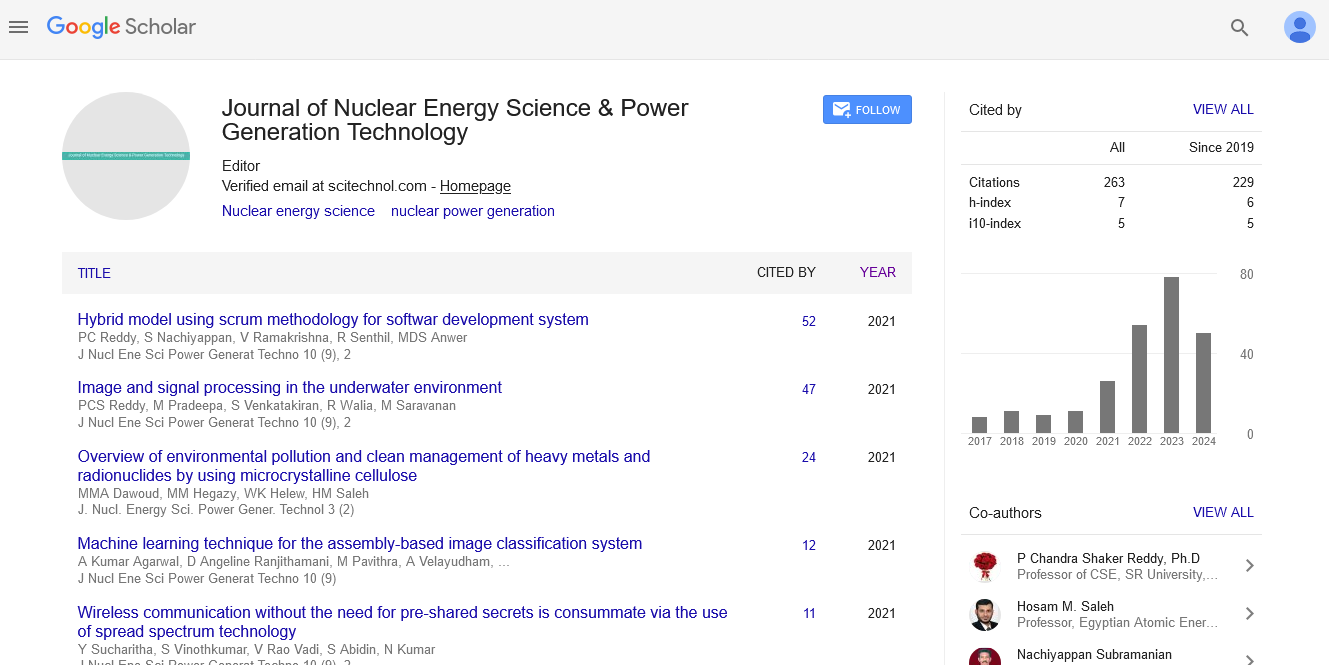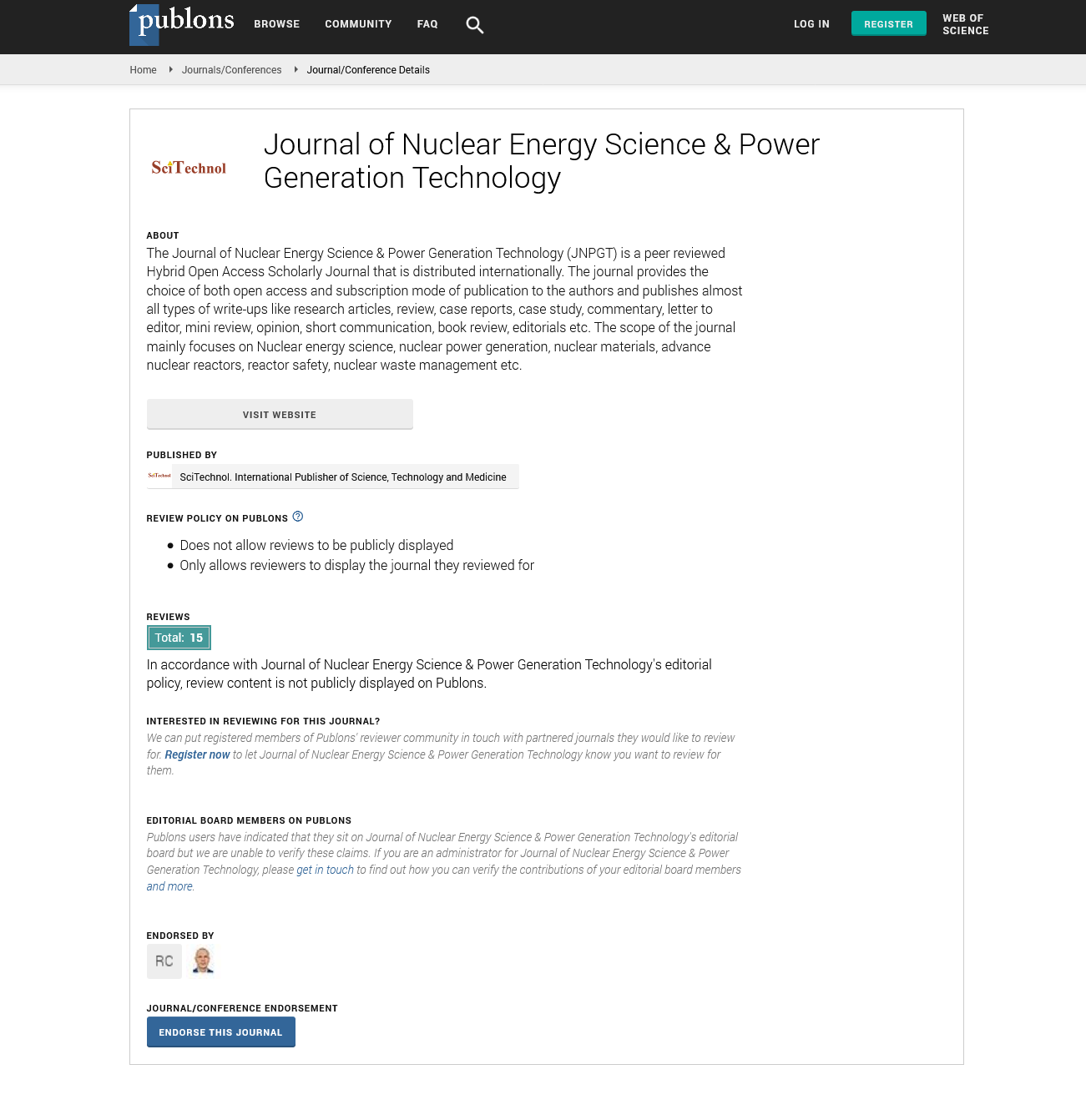Use of babassu oil fatty acids to produce a biokerosene by heterogeneous esterification
Albuquerque M C G, Ponte F A F, Malveira J Q and Marciel I A
Universidade Federal do Ceara, Brazil
Nucleo de Tecnologia Industrial do Ceara, Brazil
: J Nucl Ene Sci Power Generat Technol
Abstract
In this work a optimization biokerosene production was studied by esterification of fatty acids (C6 to C16) from babassu oil. The process variables in heterogeneous catalysis were evaluated using an experimental design. Temperature and reaction time were the studied parameters, and the methyl esters content was response of the experimental design. An ion exchange resin was used as a heterogeneous catalyst. The process optimization was carried out using response surface methodology (RSM) and polynomial model of second order. Results demonstrate that the RSM can be effectively applied to optimize the process in biokerosene production. The most influential variables on the linear coefficient of each effect studied were temperature and reaction time. The catalyst content showed little significance. The best result of methyl esters conversion in the experimental design was under the conditions: 10% wt of catalyst amount; temperature of reaction on 100°C and 4 hours of reaction time. The best achieved conversion was 96.5% wt of biofuel production.
Biography
Albuquerque M C G graduated in Chemical Engineering from Universidade Federal do Ceará (2000); did Master's in Chemical Engineering from Universidade Federal do Ceará (2003) and PhD in Chemistry from Universidade Federal do Ceará (2008) with a period in Malaga University, Spain. He is Professor of Mechanical Engeneering Departament in Universidade Federal do Ceará. He has experience in renewable energy, petroleum and chemical engineering, acting on the following subjects: Biomass, biofuel, lubricant oil, catalysis and mesoporous materials.
Email: monica.albuquerque@ufc.br
 Spanish
Spanish  Chinese
Chinese  Russian
Russian  German
German  French
French  Japanese
Japanese  Portuguese
Portuguese  Hindi
Hindi 

